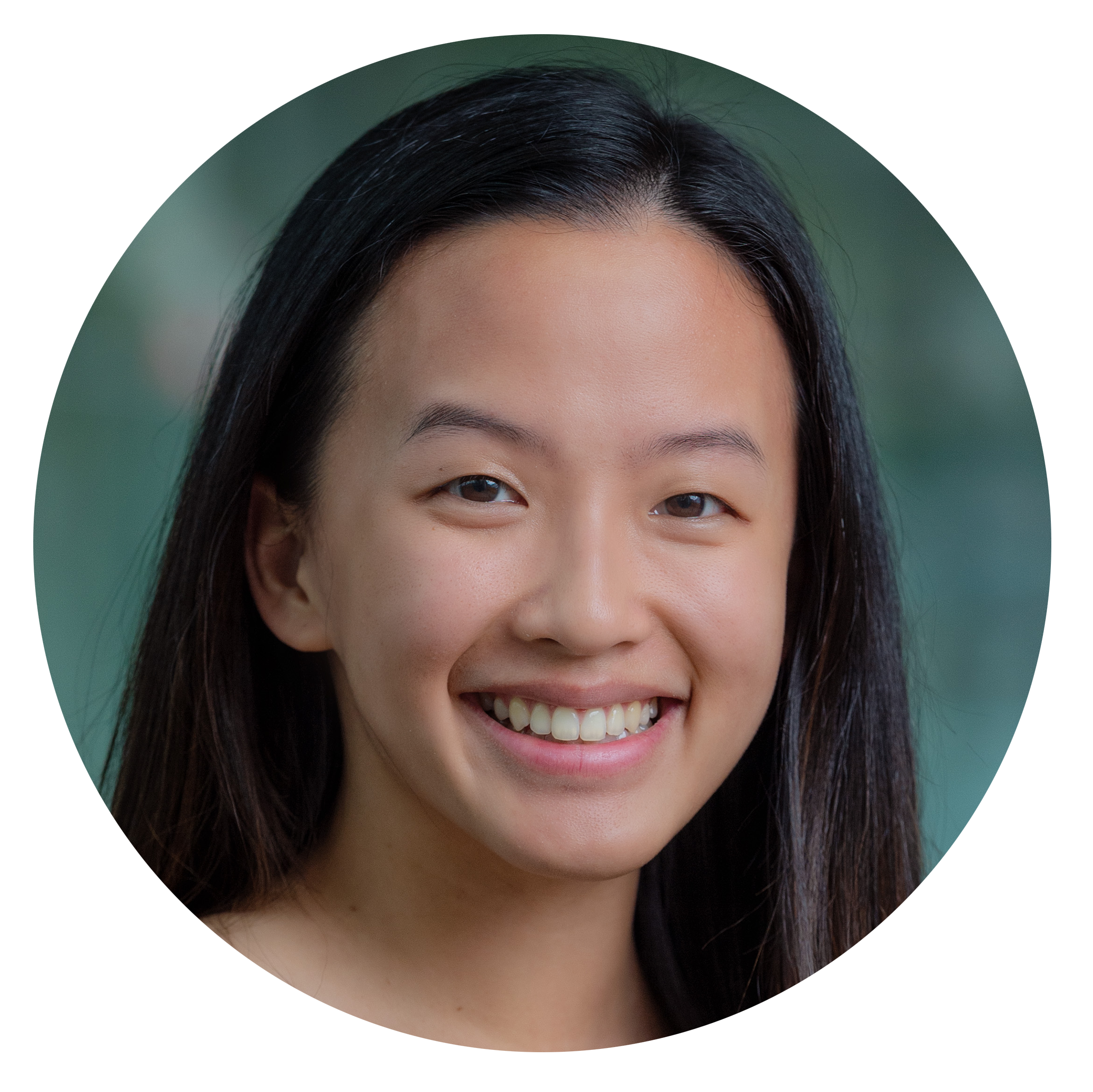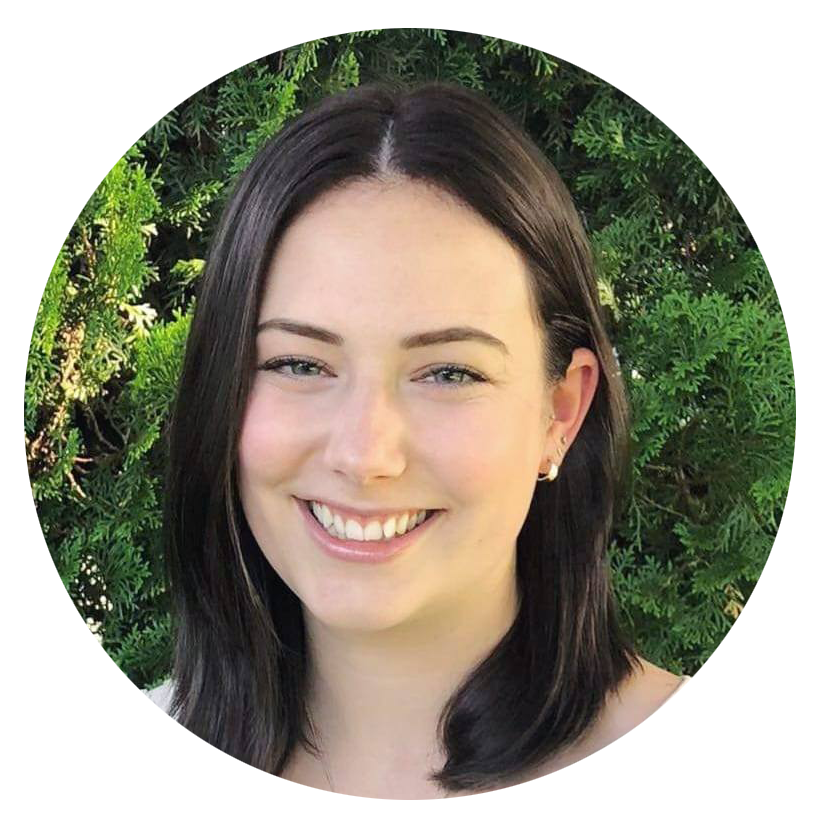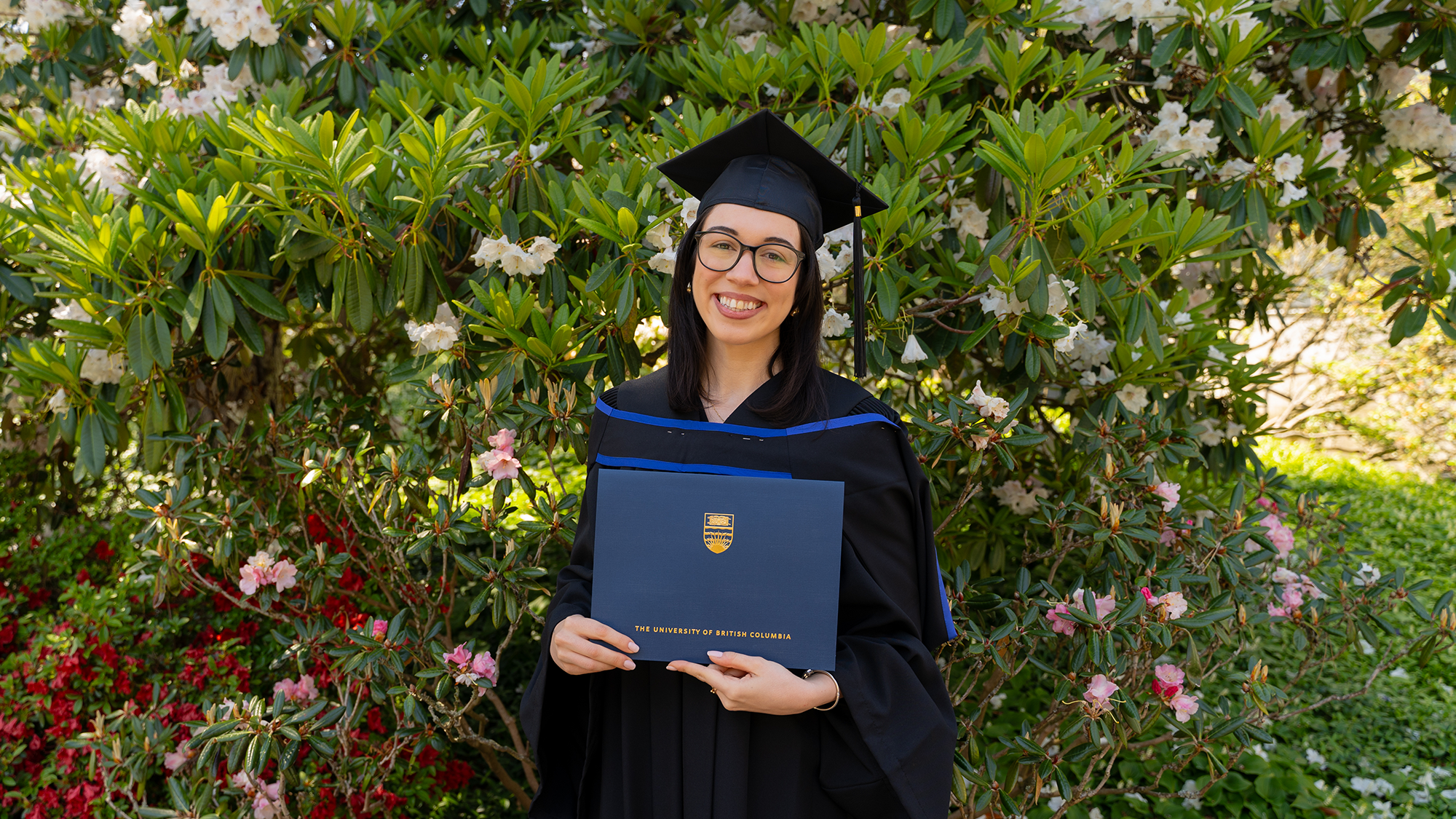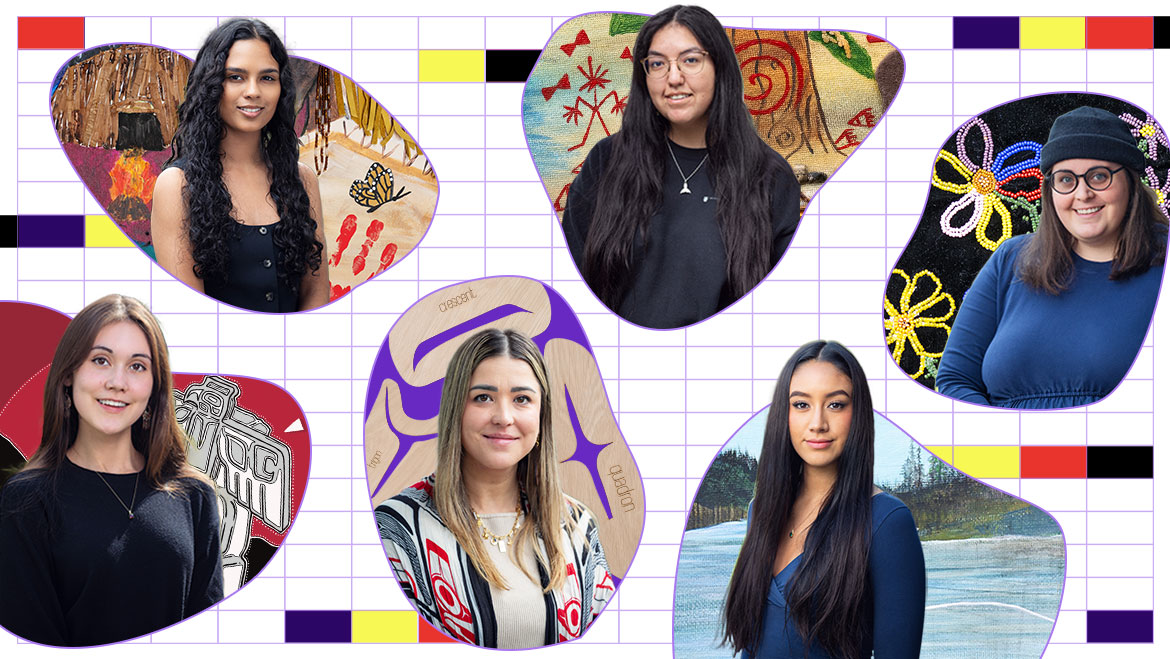

Tiffany Lee and Lindsey Palmer, recipients of the 2021 Outstanding Leader in the UBC Community award.
Tiffany Lee and Lindsey Palmer have each received the 2021 Outstanding Leader in the UBC Community award for their dedication to building community and shaping positive, healthy campus cultures at UBC.


Tiffany Lee
Hometown: Coquitlam, BC & Calgary, AB
Program of Study: Bachelor of Arts (International Relations, Asian Canadian & Asian Migration Studies) and Master of Management dual degree
UBC Awards: Hugh M Brock National Entrance Scholarship (Presidential Scholars Award), Bachelor + Master of Management Dual Degree Scholarship
UBC Affiliations: UBC Scholars Community, UBC Student Alumni Council, UBC Initiative for Student Teaching and Research in Chinese Canadian Studies, UBC Asian Canadian & Asian Migration Studies Program, AMS Musical Theatre Troupe
How can we connect with you?
LinkedIn
Why did you choose your academic program of study?
I knew I wanted to study global issues at a deeper level in university. I always loved history and politics, and through International Relations, I didn’t have to pick just one! An interdisciplinary perspective on our world’s most critical issues is extremely valuable.
Through the Bachelor + Master of Management dual degree, I could also obtain tangible business skills that are necessary in any industry or field. Not knowing exactly what I wanted to do, I knew that the B+MM could only benefit my professional development.
I later discovered my minor in Asian Canadian & Asian Migration Studies, and it’s been both personally and academically meaningful. Being second-generation Chinese Canadian, I’ve gotten to explore my relationship as a settler on traditional, ancestral and unceded Indigenous territories, and also understand where I fit within historical trends of global migration, particularly trans-Pacific Asian migration.
What are some of the meaningful experiences you’ve had at UBC?
My incredible journey at UBC started on my first day of university, with being the first Program Ambassador of the Scholars Community. I had the opportunity to spearhead this brand-new program and create a new community for domestic major entrance award recipients. This became my home for the past five years and built my foundation as a student leader. I learned to create events and chair committees and built a mentorship program. It not only grew my skills, but became a meaningful network of students that I could connect with across campus.
I’ve really enjoyed my student leadership experiences at UBC, including being President of the AMS Musical Theatre Troupe for two years and President of the UBC Student Alumni Council. Being President of the Student Alumni Council was a fantastic way to wrap up my involvements on campus. Through these experiences, what I’ve enjoyed most is getting to know and collaborating with my peers.
I also loved being on the student research team as a Community Strategy Analyst for the UBC Initiative for Student Teaching and Research in Chinese Canadian Studies. Under Dr. Henry Yu, I worked on community-based research projects with partners in Vancouver’s Chinatown, and got to see firsthand the vibrant Chinatown community working hard to conserve intangible cultural heritage.
“I emulate the leadership qualities that I’ve seen in my peers, professors and staff supervisors, so I wouldn’t be able to do any of this without them. Being a great Arts student leader means continuously learning from those around you.”
What’s an important life lesson that your involvement activities have taught you?
My involvement activities, whether they were successes or failures, have taught me to be a better leader. In any project that you’re working on, the key foundations to success are open communication and empathy. I continually learned to be a better team player throughout my time at UBC. With an open mind and open heart, you can solve problems and face challenges head-on.
You recently received a 2021 Outstanding Leader Award. What does it mean to be a great Arts student leader?
I’m incredibly humbled and ultimately, this award not only reflects the work that I’ve done, but the support systems that have enabled and trusted me to lead. I emulate the leadership qualities that I’ve seen in my peers, professors and staff supervisors, so I wouldn’t be able to do any of this without them. Being a great Arts student leader means continuously learning from those around you.
What are the top three things that every Arts student should try before they graduate?
- Participate in Jump Start, Imagine Day or Collegia as an upper-year student leader.
- Invest in your professional development, whether it’s through Arts Co-op, Work Learn, doing research with a faculty member, or more.
- Join a club dedicated to a cause or hobby you’re passionate about to meet like-minded peers.
What’s next for you?
I’m finishing my Master of Management dual degree this year and then I’ll be heading to Victoria for the BC Legislative Internship Program, where I’ll be gaining firsthand experience in policymaking and BC’s legislative process.


Lindsey Palmer
Hometown: Port Moody
Program of study: English Literature and Political Science
UBC Awards: Margaret Lawrence Scholarship in Arts, UBC 2030 Contest Winner (UBC Sustainability), William Robbins Memorial Prize in British Literature, Dean’s Honour
UBC Affiliations: Youth Climate Ambassador Project, Climate Justice UBC, English Student Association, UBC Wellness Centre, UBC Student Health & Wellness Advisory Committee, UBC Centre for Student Involvement & Careers, Imagine Day
How can we connect with you?
LinkedIn
Why did you choose your academic program of study?
I’m notoriously indecisive, so I opted for a double major to broaden my studies! However, after more time at UBC, I can say that English Literature is the subject I’m most passionate about. I believe that the stories we tell about ourselves and the world we live in have an enormous impact on the futures we can imagine and build.
What are some of the meaningful experiences you’ve had at UBC?
My most meaningful student leadership experiences were probably with the Collegia Program, where I was a Collegia Advisor (CA) in the 2018-19 academic year and a Senior CA in the 2019-20 academic year. Collegia gave me a supportive team of like-minded student leaders and a space where I could find my strengths and grow by taking on new responsibilities, all while supporting first-year students in meaningful and rewarding ways. Some of my favourite moments were speaking on a panel and doing an Instagram takeover at the 2019 Student Leadership Conference, training with the 2019-20 Senior CA team, and getting to watch my team of Advisors grow through their roles in the Upper Exchange Collegium.
“I think one of the best parts of an Arts degree is the way it encourages you to pay attention to the social systems that structure our societies. There are many ways to be an Arts student leader, but I think it's incredibly productive to bring this social perspective to leadership work.”
What’s an important life lesson that your involvement activities have taught you?
First, to step out of my comfort zone and try new things, and second, to find my boundaries and not overstretch myself. Once you start getting involved, it’s easy to overcommit given the incredible number and breadth of opportunities available at UBC. I think we’re often told to take every opportunity that comes our way, and this is an important start to student leadership, but it’s also essential to know when enough is enough and ensure that you’re able to devote the time to do each of your commitments well. Saying “no” is something I continuously struggle with when it comes to involvements, but it’s ultimately necessary for maintaining my wellbeing and showing up the way I want to for the things that matter to me.
You recently received a 2021 Outstanding Leader Award. What does it mean to be a great Arts student leader?
I think one of the best parts of an Arts degree is the way it encourages you to pay attention to the social systems that structure our societies—to borrow from my courses this semester, that might be how anti-colonial thinkers frame and contest settler coloniality, how ancient Greek thought continues to be relevant to contemporary political problems, how Asian Canadian literature reveals experiences of racialization, diaspora, place-making, and solidarity, and how fan studies conceptualizes the current moment of convergence culture.
There are many ways to be an Arts student leader, but I think it’s incredibly productive to bring this social perspective to leadership work. Understanding the histories and dynamics that have created the world we live in encourages us to look at current systems critically, hold space for equity-seeking groups, ask who is not in the room, and always question what we can be doing better.
What are the top three things that every Arts student should try before they graduate?
- Check out the special events and speaker series hosted across campus, from workshops by the Climate Hub, to the Phil Lind Initiative Speaker Series, to UBC Connects. I wish I had taken advantage of these earlier in my degree because they bring so many fantastic thinkers to your fingertips!
- Vote for your student representatives, with the AMS and the Arts Undergraduate Society! There are elected student leaders out there doing fantastic work and ultimately, they are accountable to you as a UBC student—make sure your voice and values are heard.
- Take advantage of the perks that come with your student card and visit the museums and galleries on campus for free.
What’s next for you?
I’ll be pursuing graduate studies in English Literature!


